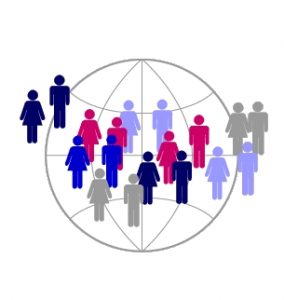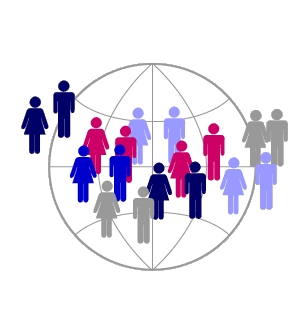Date Posted: June 1, 2011
Print Edition: May 27, 2011
By Alex Watkins (The Cascade) – Email
 Did you know that – according to a 2000 study by Anne Fausto-Sterling – between 1.7 and 4 per cent of the world’s population is born intersexed, meaning that their “primary and secondary sexual characteristics [i.e.: internal sex organs (gonads), external genetalia and chromosomes] are neither clearly male nor female” but rather a combination of the two? Apparently Canada doesn’t. According to the 2011 Census, everyone who lives here is either strictly “male” or “female” – no intersexed, transgendered, transsexual, or transitioning people here, thank you.
Did you know that – according to a 2000 study by Anne Fausto-Sterling – between 1.7 and 4 per cent of the world’s population is born intersexed, meaning that their “primary and secondary sexual characteristics [i.e.: internal sex organs (gonads), external genetalia and chromosomes] are neither clearly male nor female” but rather a combination of the two? Apparently Canada doesn’t. According to the 2011 Census, everyone who lives here is either strictly “male” or “female” – no intersexed, transgendered, transsexual, or transitioning people here, thank you.
Canada generally considers itself to be multicultural, diverse, and accepting, yet when it comes to issues surrounding gender, sex, and sexuality, it seems that there is still plenty of new ground to be broken. India added the option of a “third sex” to its voters’ list in 2009, though its intersexed and trans populations are arguably no less marginalized than they are in Canada, and in January Nepal moved to include a transgender option on its official census – so why are we behind the curve?
Leaving out any categories for gender apart from male or female on a census meant to collect information about Canada’s entire population reflects an attitude towards intersexuality as a medicalized problem that must be fixed by assigning one of two accepted genders – rather than an acceptance of intersexuality as a legitimate and natural way of being – and of an attitude towards trans people as illegitimate or simply not understood.
It is incredible how pervasive the idea of intersexuality as problematic remains within a society that considers itself so progressive and how damaging this attitude can be. Many parents are so unsettled by intersexuality or consider it to be such a potential source of stigma that they elect to surgically alter their intersexed infants’s bodies, removing and/or reconstructing the genitals to craft something that resembles the genitalia of a single recognized sex. The problem is that in insisting that children have genitals that are “normal” in appearance, we typically cause painful scarring and destroy not only any actual reproductive capabilities but the nerve endings that allow them to experience sexual pleasure as well. But what’s a life without child rearing or orgasms as long as your junk looks recognizably male or female, right?
As for the argument that sexual reassignment surgery saves children from the inevitable psychological damage of not “fitting in,” consider this: artificially constructed vaginal openings (for children who are assigned “female”) must be regularly dilated during childhood in order to keep them from simply closing up. Anyone else think that the psychological damage and trauma of being dilated all through childhood by a parent or other trusted adult might be on par with the alienation of living as intersexed in our society?
The fact remains that, despite the progress that has been made on feminist and queer issues, we live in a country that is often uncomfortable with and unsure of how to deal with any individual that falls outside of our given parameters for sex and gender, and this discomfort and uncertainty shows itself in subtle ways that often go unnoticed by those that do not directly experience discrimination or alienation because of it. The specific language we use in our official documents and the data that we deem worthy of collection is important and has specific implications for the population that is surveyed. When citizens look at a national census and see that their country does not acknowledge their existence, harm is done. The pressure for people to exist in prescribed male/female categories when sex and gender are clearly so much more diverse than that leads to institutionalized violence against trans and intersexed individuals, who are essentially told: you might as well not exist at all.
Formally recognizing the legitimacy of groups that exist apart from the strict male/female categories we have imposed is an important step in not only fostering the public acceptance of these groups but in spreading the knowledge that they exist at all, as trans and intersexed individuals are – for the most part – woefully absent from popular media and the public education system. Given the alienation that many intersexed individuals – who do not recognize themselves in the world around them – feel, the pressure parents feel to surgically alter their child’s genitals – sacrificing sexual pleasure and reproductive capacity for the appearance of “normality” – and the persistent violence and discrimination faced by the trans population, I’d say Canada is morally obligated to start taking a serious interest in educating the public on these issues, fostering acceptance, and ensuring that their Census reflects that.


